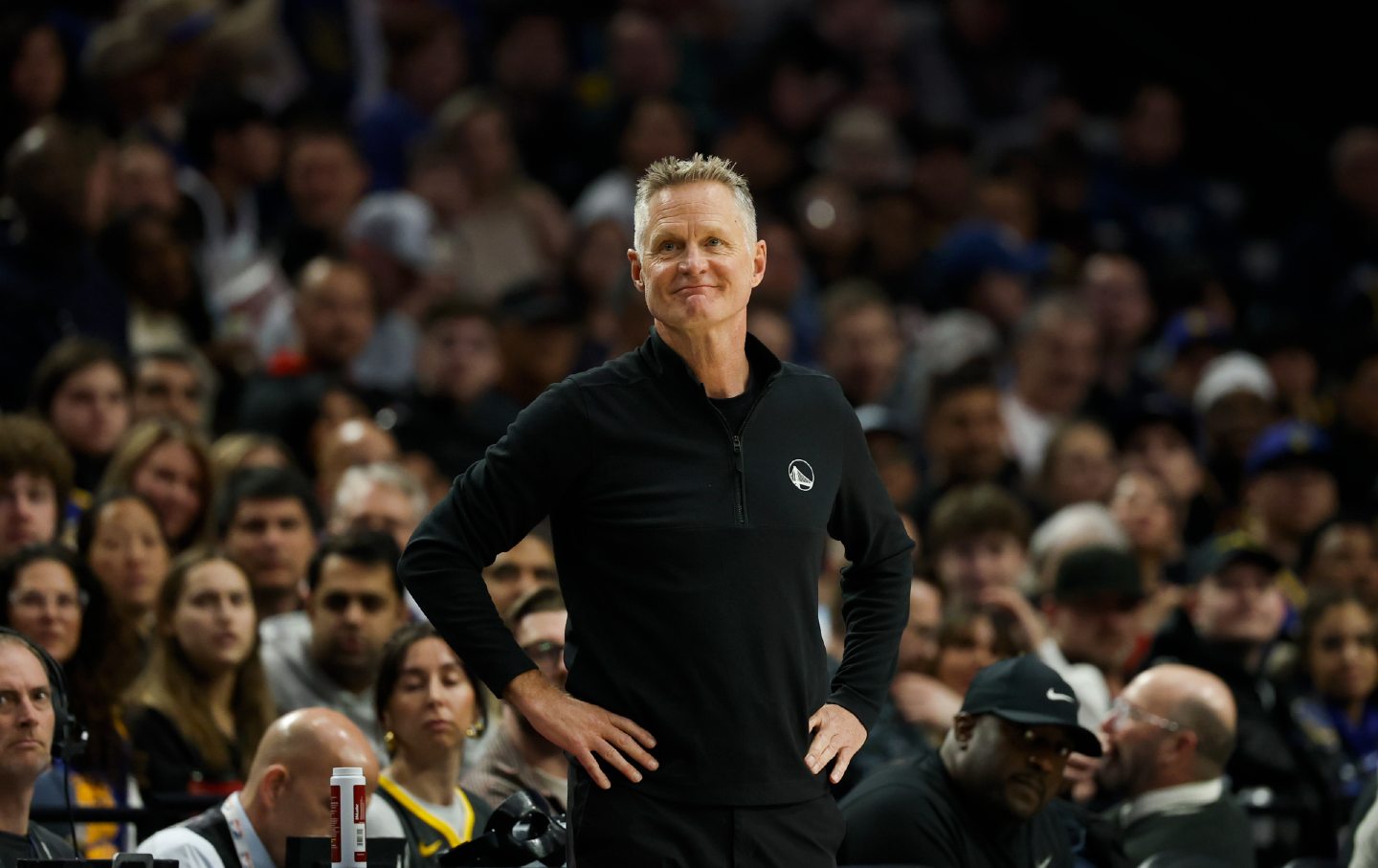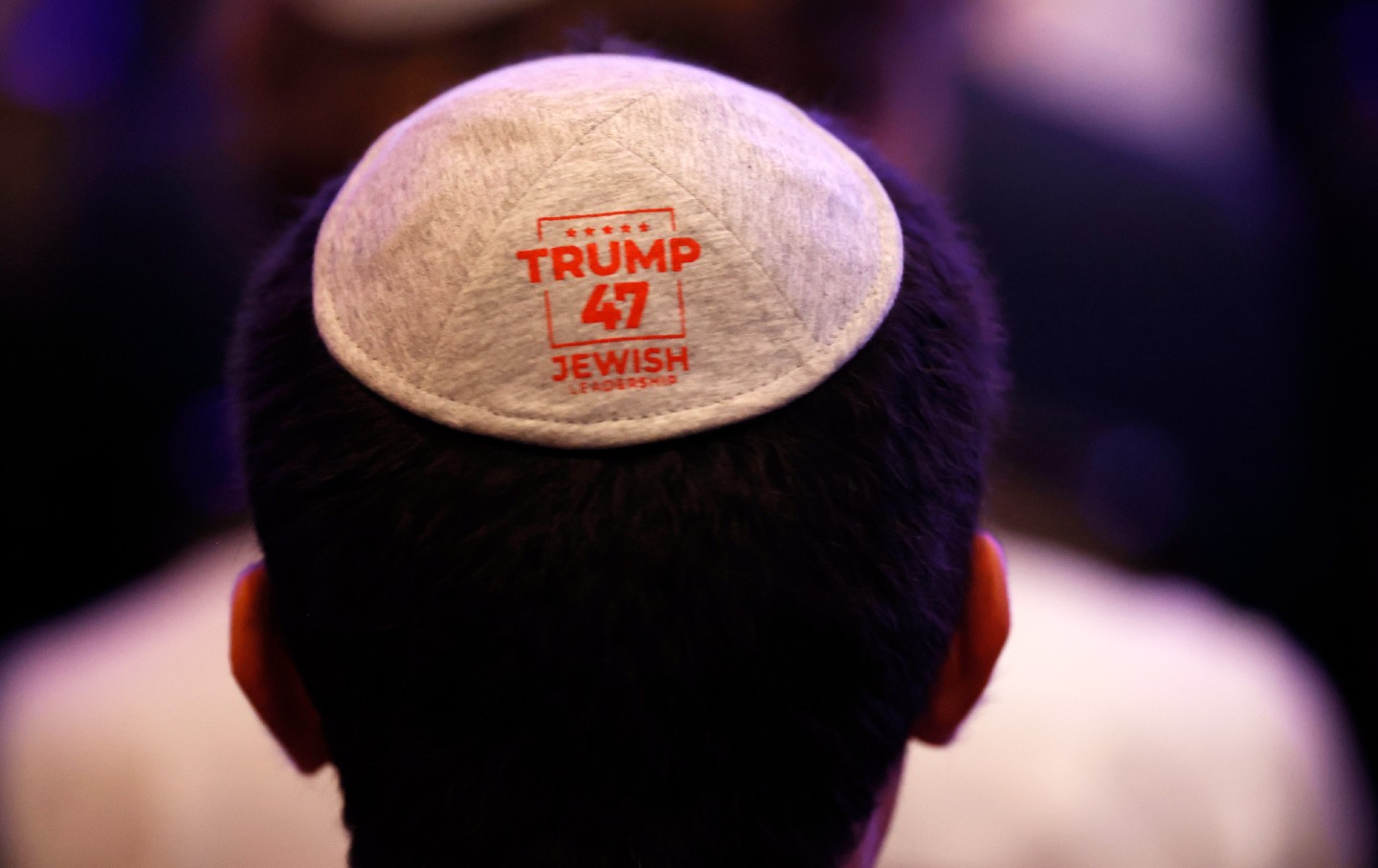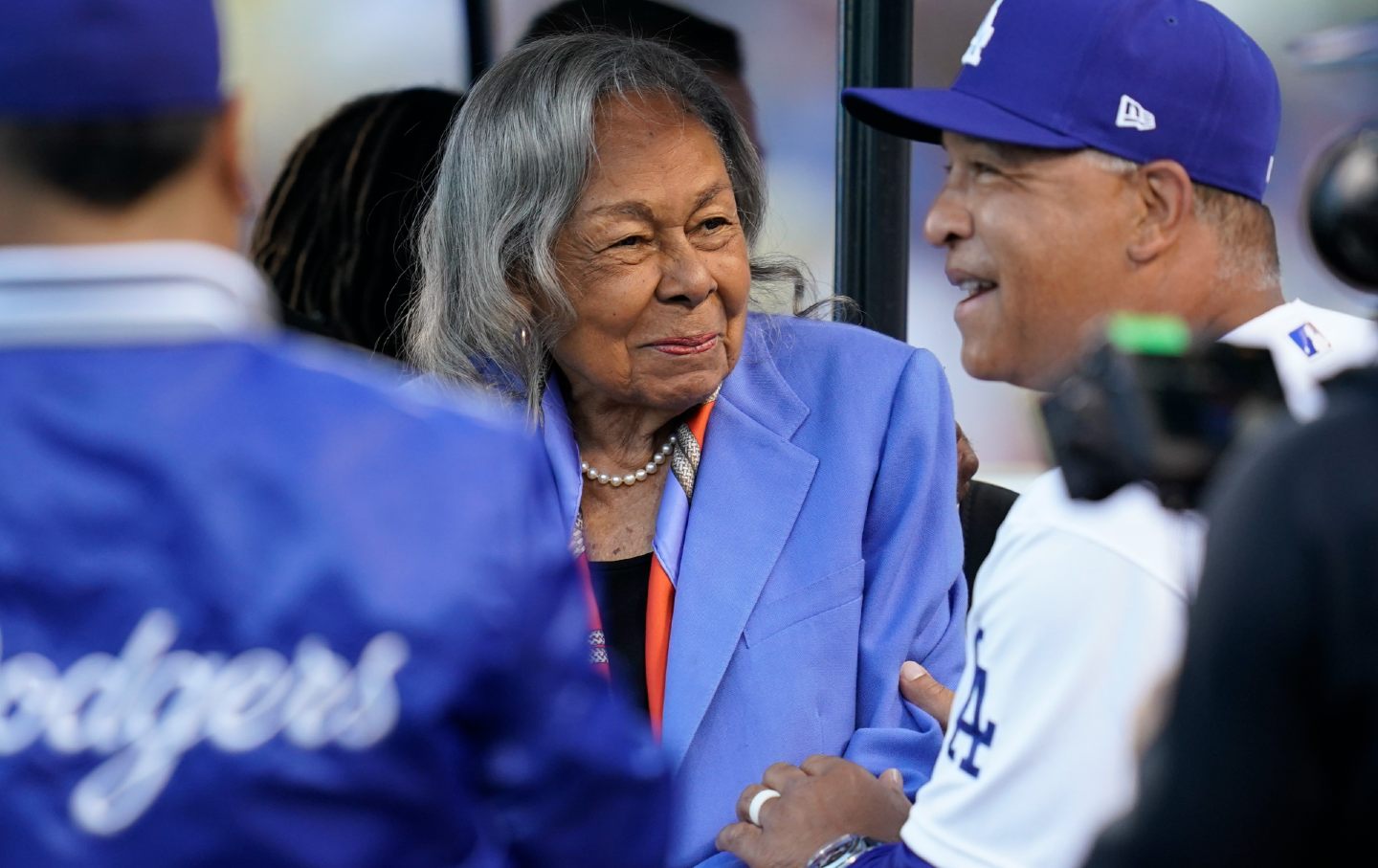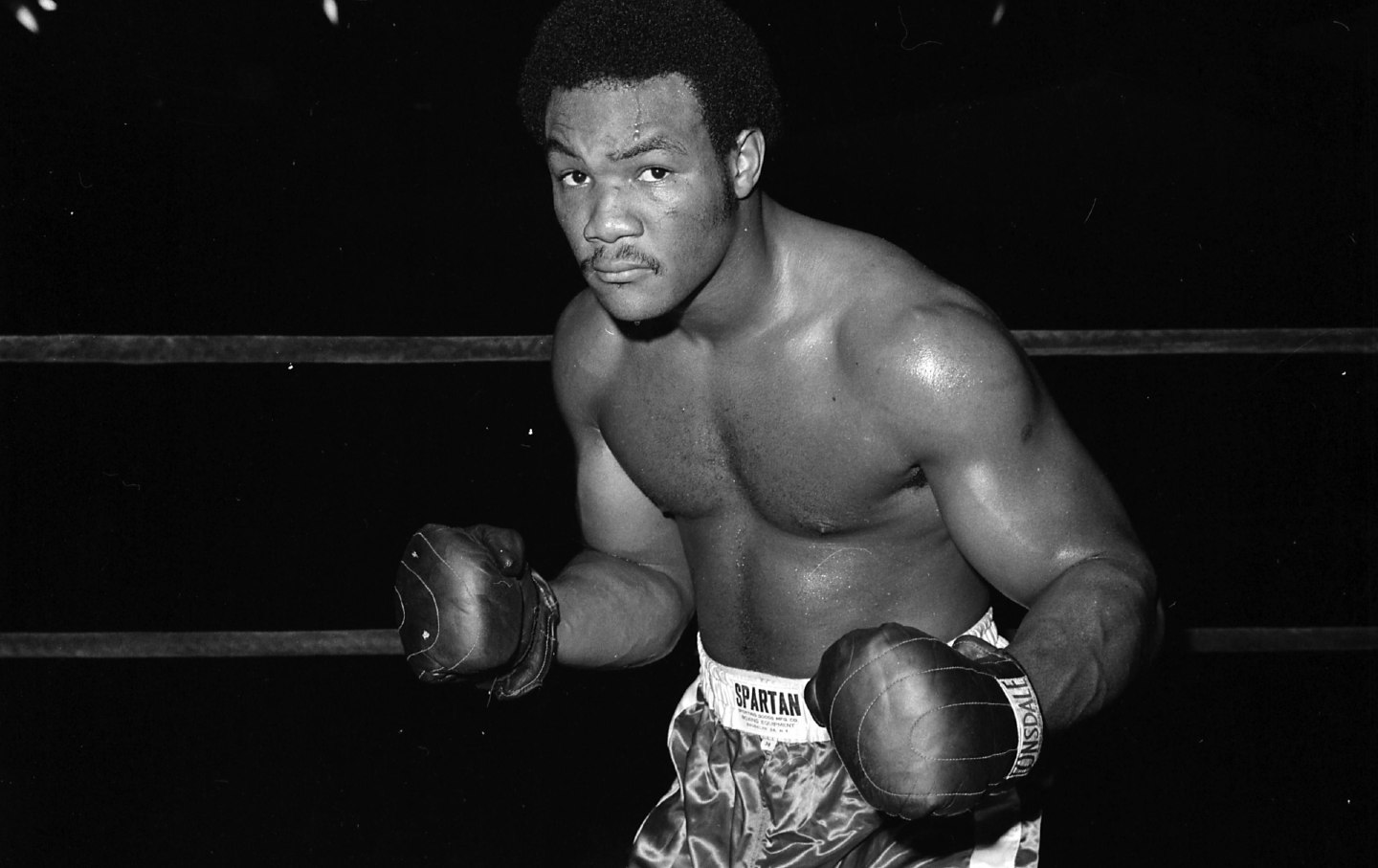Why There Are No Trans Women Competing at the Paris Games
There are at least two trans nonbinary athletes—Quinn and Nikki Hiltz—and they’re impossible not to cheer for.
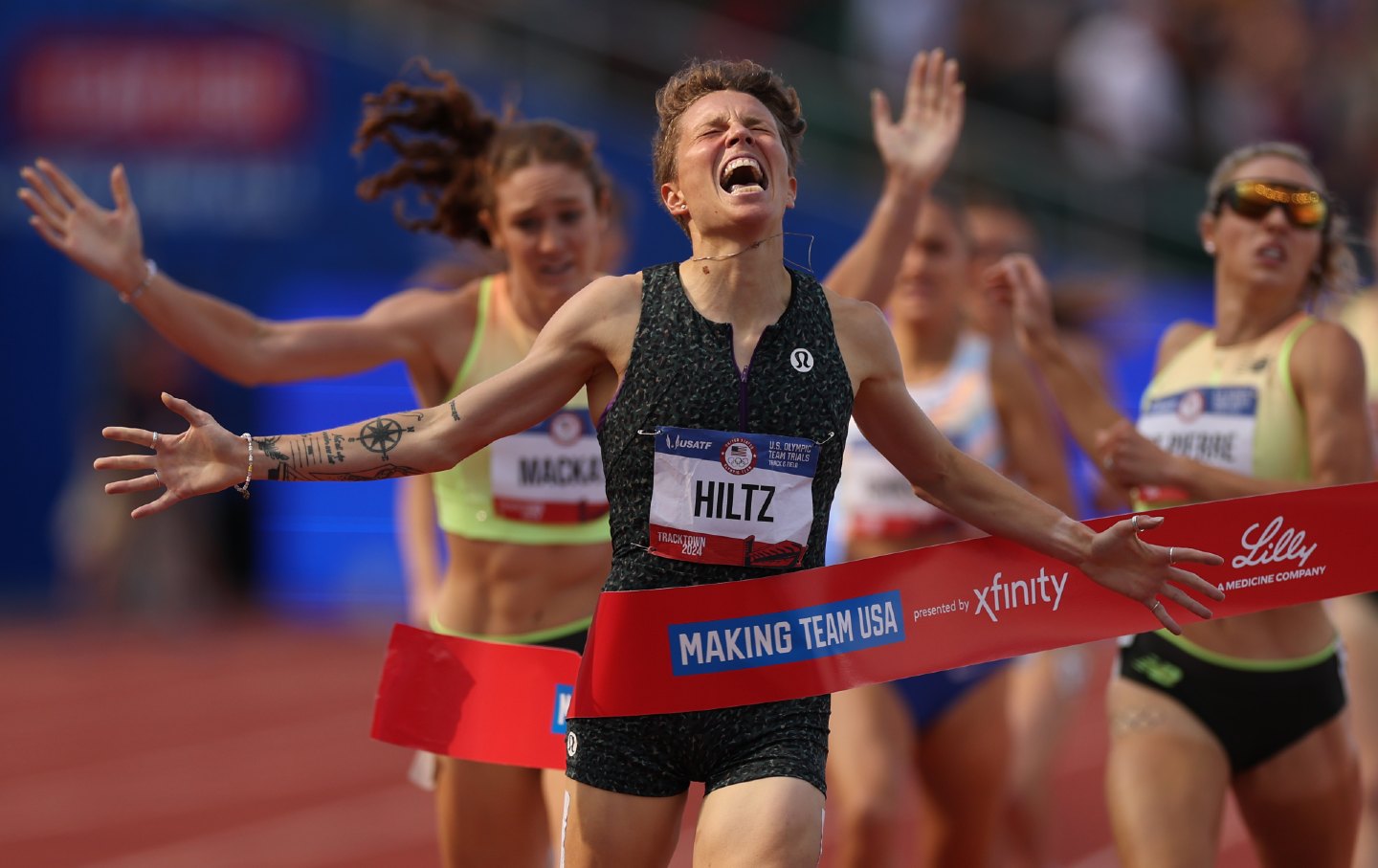
Nikki Hiltz celebrates crossing the finish line to win the women’s 1500-meter final at the 2024 US Olympic Team Track & Field Trials at Hayward Field on June 30, 2024 in Eugene, Oregon. They are competing for the US in Paris in the 1500-meter race.
(Patrick Smith / Getty Images)When Canada took the field on July 25 to face off against New Zealand on the first day of the Paris 2024 Olympic women’s soccer competition, history was made: Canadian midfielder Quinn became the first out trans nonbinary Olympian to take part in consecutive Olympics. Quinn came out as nonbinary ahead of the 2021 Tokyo Games, becoming the first openly trans Olympic competitor. To mark the moment, they posted on Instagram:
I don’t know how to feel.
I feel proud seeing “Quinn” up on the lineup and on my accreditation.
I feel sad knowing there were Olympians before me unable to live their truth because of the world.
I feel optimistic for change. Change in legislature. Changes in rules, structures, and mindsets.
Mostly, I feel aware of the realities. Trans girls being banned from sports. Trans women facing discrimination and bias while trying to pursue their olympic dreams. The fight isn’t close to over… and I’ll celebrate when we’re all here.
Quinn is not the only nonbinary athlete competing in Paris. In early August, they will be joined by US 1,500-meter runner Nikki Hiltz, who qualified for the Games in spectacular fashion, bursting past the leaders of the pack in the final stretch of the race. Afterward, they said, “This is bigger than just me. It’s the last day of Pride Month.… I wanted to run this one for my community. All the LGBT folks, you guys brought me home that last hundred [meters]. I could just feel the love and support.”
Now Hiltz will be running for their community in the Olympics, and very much against the grain when one considers the retrograde approach that the transphobic World Athletics, the global governing body for track and field, has taken when it comes to trans participation. In March 2023, it issued new guidelines that, in essence, banned transgender women athletes from participating in World Athletics events: The group “agreed to exclude male-to-female transgender athletes who have been through male puberty.”
World Athletics is headed by former Olympian and International Olympic Committee member Sebastian Coe, who emphasized the desire to assure “the integrity of the female category in athletics” and stated, “We will be guided in this by the science around physical performance and male advantage which will inevitably develop over the coming years.” Implicit in his official statement was a two-prong admission: (1) This policy targeted trans women, and (2) there is currently no scientific consensus—rooted in systematic, independent research—that justifies the exclusion of trans athletes. It’s just a vibes thing.
What about the International Olympic Committee? Back in 2021, months after trans athlete Laurel Hubbard represented New Zealand in weightlifting—and the world kept on chugging along—the IOC issued a “framework on fairness and non-discrimination on the basis of gender identity and sex variations” that, on its surface, sounded promising. The framework appeared to be rooted in inclusion (“Everyone, regardless of their gender identity, expression and/or sex variations should be able to participate in sport safely and without prejudice”), nondiscrimination (“Eligibility criteria should be established and implemented fairly and in a manner that does not systematically exclude athletes from competition based upon their gender identity, physical appearance and/or sex variations”), and the assumption that no one was inherently advantaged by gender (“No athlete should be precluded from competing or excluded from competition on the exclusive ground of an unverified, alleged or perceived unfair, competitive advantage due to their sex variations, physical appearance and/or transgender status”). IOC President Thomas Bach said about trans inclusion policies: “You have to make a scientific evaluation. You have to consult with everybody concerned.”
But then, cowering behind a wall of nice-sounding words, the IOC did not defend or protect transgender athletes. The self-proclaimed “supreme authority” of the Olympics punted responsibility to international sports federations to craft their own policies. That’s exactly what the federations did, starting with swimming and athletics, which developed policies that violated the spirit of the IOC’s statement. Neither policy is rooted in independent science research. This bastion of ill-conceived chicanery explains why we will see no trans women athletes at the Paris Olympics, or any Olympics for the foreseeable future.
Satoko Itani, a gender-studies specialist at Kansai University in Japan, told us, “Excluding trans women in order to supposedly eliminate male privilege and to ‘protect’ women’s sports, ignores the fact that there are so many other forms of male privilege that are actually hindering women’s participation, from unequal opportunities for women and girls to the abuse that they suffer to sexual harassment.” They noted, “Unlike the fledgling and inconclusive science that anti-trans forces are marshaling to exclude trans women athletes, an abundant body of research exists on these other issues.”
Travers, a professor of sociology at Simon Fraser University, said that these rules do more than marginalize trans girls and women at all levels of sports, from elementary school to the Olympics. They also feed a far greater right-wing current in the United States and around the world. Trans athletes are their stalking horse, but their goals extend well beyond that. “Female eligibility policies delegitimize trans identities, but that’s not all,” Travers told us.
“They have also become instruments to mobilize conservative and fascist movements both in the United States and across the globe. This is part of a process where they are using state power to eliminate all obstacles to the operation of racial capitalism and target people who are racialized, poor, disabled, LGBT, and undocumented.” They added, “In the United States, this is taking the form of eliminating legal protections for all marginalized people as well as the transformation of educational institutions to eradicate critical content, the maintenance of horrific border and immigration systems, and the prioritization of the needs of capital over climate change.”
This nexus of fascism, the Olympics, and anti-trans ideology recalls one of the darkest periods of Olympic history: when Nazis, notorious for their anti-queer persecution, convinced World Athletics (then called the International Amateur Athletic Federation) and the IOC to instigate sex-testing policies. Nazi sports doctor Wilhelm Knoll barraged the sports bodies with letters demanding “that all female participants in the Olympic Games should have their gender checked beforehand by a specially-commissioned doctor.” As Michael Waters notes in The Other Olympians: Fascism, Queerness, and the Making of Modern Sports:
Reading between the lines of these letters, underscores the truth: there was no coherent ideology or intellectual idea behind Knoll’s push for sex testing. For as adamant as he was, that the Olympics needed to regulate athletes on the basis of their bodies, he seemed to spend shockingly little time, considering what those regulations would look like. He simply hadn’t thought it through. Instead, Knoll’s push for sex testing could be seen as a reactionary measure, colored, almost entirely by his own anxieties about masculinity and femininity—and, perhaps, not incidentally, by his commitment to eugenics.
Despite the dearth of scientific evidence, the Nazis teamed up with Olympic power brokers to ram ahead with gender surveillance in sports. “The stature of the Olympics would,” writes Waters in The Other Olympians, “become the ideal vector” for evidence-free sex testing. The anxieties that fueled this push actually started with high-profile cases of trans men, but they remain in force today, powered by the backlash against trans women in sport and society.
Returning to Paris, it’s impossible not to root for Quinn and Hiltz. After qualifying for the 2024 Games, Hiltz said, “I’m just looking forward to keep showing up as myself and keep taking up space.” The runner added, “I use they/them pronouns, and people stumble all the time. But it’s like, ‘You can’t really ignore me anymore, because I’m a two-time, back-to-back champion. I’m here, get-it-right’ kind of vibe.” Hiltz is correct. They have long gone for the gusto. Now they go for the gold.
Hold the powerful to account by supporting The Nation
The chaos and cruelty of the Trump administration reaches new lows each week.
Trump’s catastrophic “Liberation Day” has wreaked havoc on the world economy and set up yet another constitutional crisis at home. Plainclothes officers continue to abduct university students off the streets. So-called “enemy aliens” are flown abroad to a mega prison against the orders of the courts. And Signalgate promises to be the first of many incompetence scandals that expose the brutal violence at the core of the American empire.
At a time when elite universities, powerful law firms, and influential media outlets are capitulating to Trump’s intimidation, The Nation is more determined than ever before to hold the powerful to account.
In just the last month, we’ve published reporting on how Trump outsources his mass deportation agenda to other countries, exposed the administration’s appeal to obscure laws to carry out its repressive agenda, and amplified the voices of brave student activists targeted by universities.
We also continue to tell the stories of those who fight back against Trump and Musk, whether on the streets in growing protest movements, in town halls across the country, or in critical state elections—like Wisconsin’s recent state Supreme Court race—that provide a model for resisting Trumpism and prove that Musk can’t buy our democracy.
This is the journalism that matters in 2025. But we can’t do this without you. As a reader-supported publication, we rely on the support of generous donors. Please, help make our essential independent journalism possible with a donation today.
In solidarity,
The Editors
The Nation

